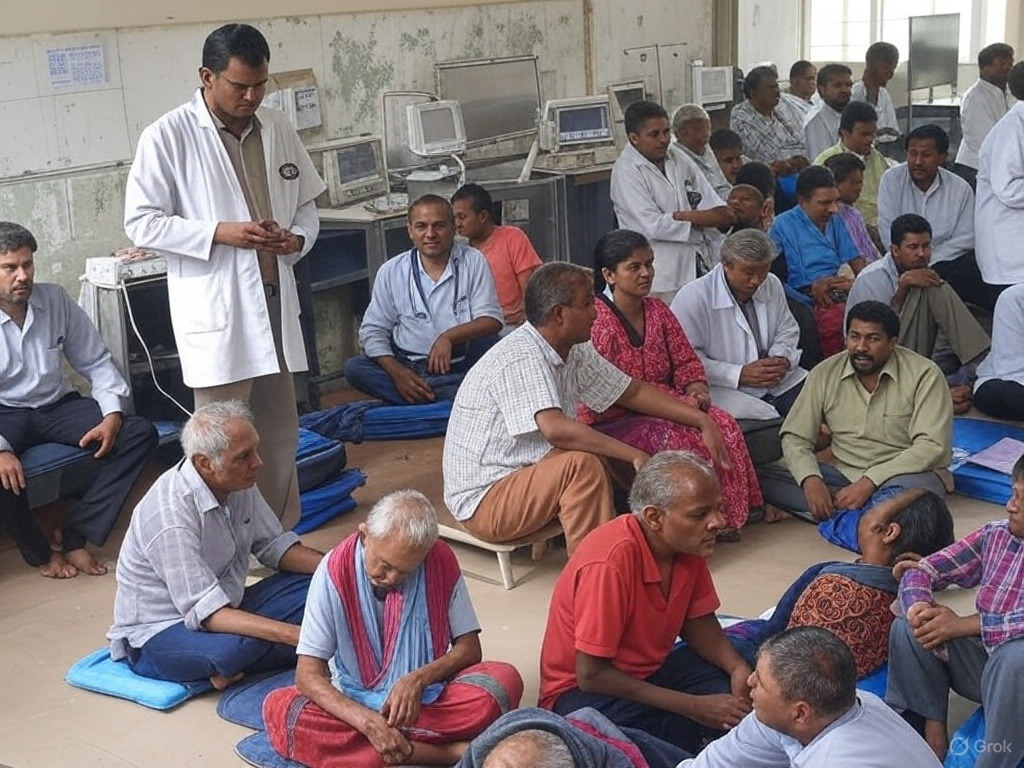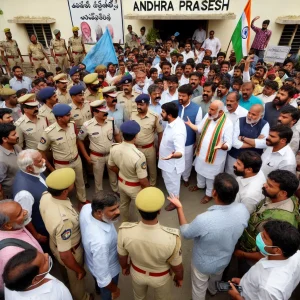
Amaravati: Andhra Pradesh’s healthcare sector is facing a critical phase, particularly in medical education. The recent statements by Health Minister Satyakumar Yadav have highlighted the government’s inefficiency in this area, raising serious concerns. His admission that government hospitals lack the necessary systems to provide quality medical education has sparked debates over the administration’s handling of healthcare.
How Did a Functioning System Become Ineffective?
During the previous YSRCP government’s tenure, Andhra Pradesh’s healthcare infrastructure was operational and functional. However, within just a few months of the new administration, the government is now admitting its inability to run medical institutions effectively. This raises key questions—was the healthcare system truly unsustainable, or is this a result of policy failures by the current government?
From Promises of Free Healthcare to Privatization
The Kutami alliance, which now governs Andhra Pradesh, had strongly opposed the self-financing model implemented under the YSRCP rule. During their election campaign, they promised free healthcare and medical education. However, the same government is now introducing a Public-Private Partnership (PPP) model, which essentially moves medical infrastructure towards privatization.
This sudden policy shift is alarming. Instead of strengthening public healthcare services, why is the government favoring private-sector involvement? This has raised concerns that corporate interests are being prioritized over the welfare of the people. Despite the urgent need for infrastructure improvements in government hospitals, no significant upgrades have been made. The self-financing model, previously criticized, now seems like a missed opportunity for sustainable healthcare growth.
Will the PPP Model Harm Public Healthcare?
Globally, the PPP model in healthcare has yielded mixed results. While it may improve efficiency, it often leads to increased patient costs, reduced accessibility to essential services, and a shift from public welfare to profit-driven motives.
The privatization of government hospitals in Andhra Pradesh raises serious concerns about access to healthcare for rural and economically weaker communities. Without strict government regulations, private entities may prioritize profit over patient care, making essential medical services unaffordable for many.
Is Healthcare Becoming a Business in Andhra Pradesh?
Providing quality healthcare and medical education is a fundamental government responsibility. By admitting inefficiency and opting for privatization, the current administration appears to be shifting away from its duty. While the PPP model may provide short-term solutions, its long-term consequences remain uncertain.
If the government cannot sustain public healthcare today, will it ever regain control once private corporations establish their dominance? The people of Andhra Pradesh must now ask: is this a necessary reform, or a strategic move to commercialize healthcare? The coming months will determine whether this policy benefits the public or turns healthcare into a business venture.




